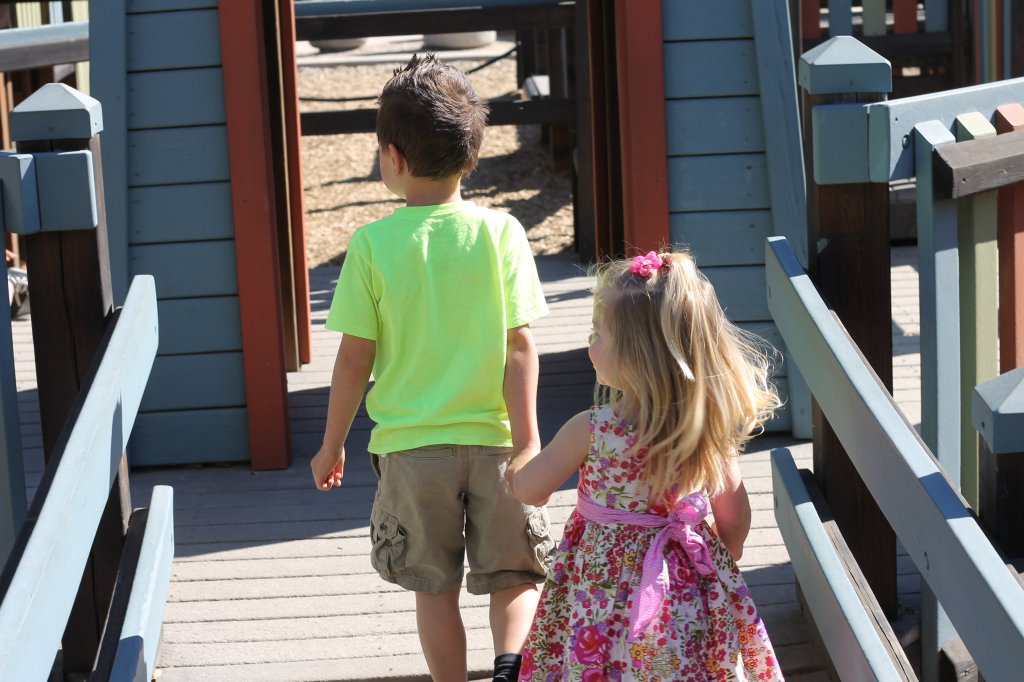I wouldn’t wear that. The other kids will make fun of you.
Your friend pays attention in class. Why can’t you?
Potty training shouldn’t take this long. Your brother had no accidents by the time he was your age.
Shaming kids into modifying their behavior by comparing them to other children works. I know because I’ve done it countless times, usually without realizing what I was doing. The realizations only came later when I reflected on the situations. Shame is a shameful word. Shame is something “bad” parents do. Shame is what all the progressive parenting articles tell you not to do to your kid. And we convince ourselves that we don’t shame our kids. That we wouldn’t.
But I think shaming is sometimes more subtle than telling our kids they’re not good enough, or publicly humiliating them. By its very definition, to shame is to make someone feel ashamed or inadequate by outdoing or surpassing them. Comparing kids to each other is letting another kid outdo or surpass our kid. It doesn’t have to be that way. Our kids can just be and exist without being put up against their peers more than they already are just by attending school, daycare or even play dates.
Comparing our kids to their peers is a parenting tactic that works, but I can’t quit it fast enough. I’ve committed to avoiding comparing my kids to others whenever possible. Don’t get me wrong. I want to ensure my kids are in a healthy place compared to other kids on the growth charts. I want my kids to be on track for their grade in school. I want my kids to be behaving and developing in an age-appropriate way. And that’s where I want the comparisons to end.
I’ve always been a person who “beats to my own drum” as my mom says. She spent much of my childhood fighting the urge to stifle my crazy impulses because she feared I’d be teased. I didn’t play with Barbies as a kid. That would be too normal. I preferred to hold the doll in front of me and run around the house, fantasizing about Barbie’s beach picnic with Ken. In the absence of dolls at school in my early elementary years, I found that two fingers held up upside down peace sign-style made a nice substitute for Barbie legs. So, I ran around the schoolyard with two fingers in front of my face.
Not exactly the cool kid recipe. Still, my mom wisely held her tongue. Occasionally she’d ask me, “are you sure you want to do that?” Oh, I was sure.
I owned my weirdness and dragged my classmates on board with me. I once convinced nearly all the girls in my first-grade class, including myself, that there were little invisible fairies we could keep in our desks.
When I graduated from junior high school, everyone else wore a slightly nicer version of regular school clothes. I wore a mothereffing evening gown, my flat chest stuffed with bikini top pads. My mom later told me my decision pained her, but to her credit, she did little to dissuade me. Because I was allowed to be myself, I’m not easily humiliated to this day. I’m generally confident and accepting of the differences in others. I speak up when I see someone being mistreated. I’m also grateful to my mom for not pressuring me to conform, even though she herself likes to fly under the radar and doesn’t like drawing attention.
When I became a parent myself, first to a boy and then four years later to a girl, I was determined to let them forge their own paths as I had done. It was a task easier said than done. It’s in a parent’s nature to worry about our kids. Conforming and blending in is safe. Standing out and being different is risky.
My son gave me no reason to worry academically. He was early to talk. Obsessed with science practically since he could walk. He’s charming. A social butterfly.
But developmentally, he lagged a little in some areas. Potty training didn’t come easily to him. He was well into his third year before he was fully trained. His peers at daycare were all ahead of him in the potty department. I became frustrated. “All your friends are going potty. Why aren’t you?”I asked him, loathing the words even as they came out of my mouth.
He had no answer, but I did. He wasn’t potty trained because he wasn’t those other kids. He was my awesome son, who was taking a little longer to potty train than his classmates.
Later, my husband and I would argue with our son over his temper tantrums in school. (I always behaved in school. Why can’t you?) We tried to bribe him to be like the other kids and style his hair.
When our daughter grew into a whiny toddler, we desperately tried to curb her incessant complaining. (No one else is crying. You need to stop.)
The comparison tactic might have worked in the short term for our kids, but never had lasting effects.
My son began to resent us telling him how to do his hair. My daughter was no less upset the next day by yesterday’s pleas to stop fussing.
At the core, kids are who they are, and no amount of bribery or comparing will change that.
If our kids’ behavior needs to be modified, it’s because the change will benefit them and those around them, not because the cool kids are doing something else.
Besides, the real coolest kids are the ones who march to their own beat.
